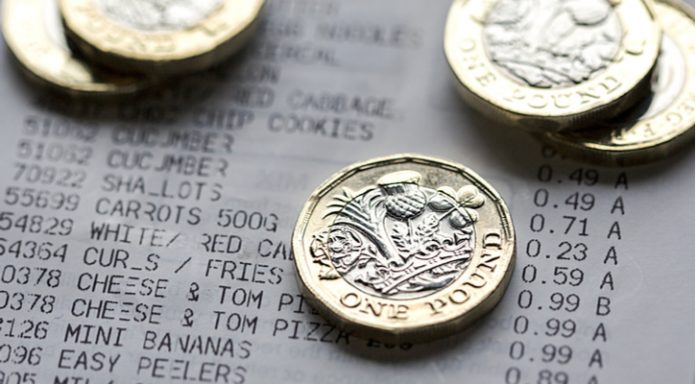A surprisingly encouraging testimony from the Bank of England (BoE) helped lift the pound on Tuesday, whilst Italian political jitters continued to weigh on the euro. As a result, the pound euro exchange rate climbed higher, hitting a high of €1.1416.
| What do these figures mean? |
|---|
|
When measuring the value of a pair of currencies, one set equals 1 unit and the other shows the current equivalent. As the market moves, the amount will vary from minute to minute. For example, it could be written: 1 GBP = 1.13990 EUR Here, £1 is equivalent to approximately €1.14. This specifically measures the pound’s worth against the euro. If the euro amount increases in this pairing, it’s positive for the pound. Or, if you were looking at it the other way around: 1 EUR = 0.87271 GBP In this example, €1 is equivalent to approximately £0.87. This measures the euro’s worth versus the British pound. If the sterling number gets larger, it’s good news for the euro. |
The Bank of England testimony to the Treasury Select Committee was more upbeat than most market participants were hoping for. Given that the quarterly inflation report and forecast a downgrade inflation and Gross Domestic Product (GDP)
| Why do raised interest rates boost a currency’s value? |
|---|
| Interest rates are key to understanding exchange rate movements. Those who have large sums of money to invest want the highest return on their investments. Higher interest rate environments tend to offer higher yields. So, if the interest rate or at least the interest rate expectation of a country is relatively higher compared to another, then it attracts more foreign capital investment. Large corporations and investors need local currency to invest. More local currency used then boosts the demand of that currency, pushing the value higher. |
Today investors will look towards UK inflation data to see whether it is inline with the upbeat outlook from the BoE. Analysts are expecting inflation in April to remain constant at 2.5%, whilst core inflation which excludes more volatile items such as food and fuel is expected to tick lower to 2.2%, down from 2.3% in March. Should inflation read lower than the forecast, the pound could decline, as the BoE will be less inclined to hike rates if inflation falls.
Eurozone PMI’s In Focus
The euro was once again on the back foot in the previous session. Concerns over the new Eurosceptic, populist Italian coalition and its politically inexperienced proposed Prime Minister has unnerved many euro traders. Whilst a full on Italian withdrawal from the EU is highly unlikely, this new government could prove to be a headache for the EU project.
Today investors will switch their attention back to economic data, after a quiet week so far on the calendar. German and eurozone manufacturing pmi could create some volatility for the euro if the data points to a continued slowing in momentum in the bloc’s economy.
|
This article was initially published on TransferWise.com from the same author. The content at Currency Live is the sole opinion of the authors and in no way reflects the views of TransferWise Inc. |





